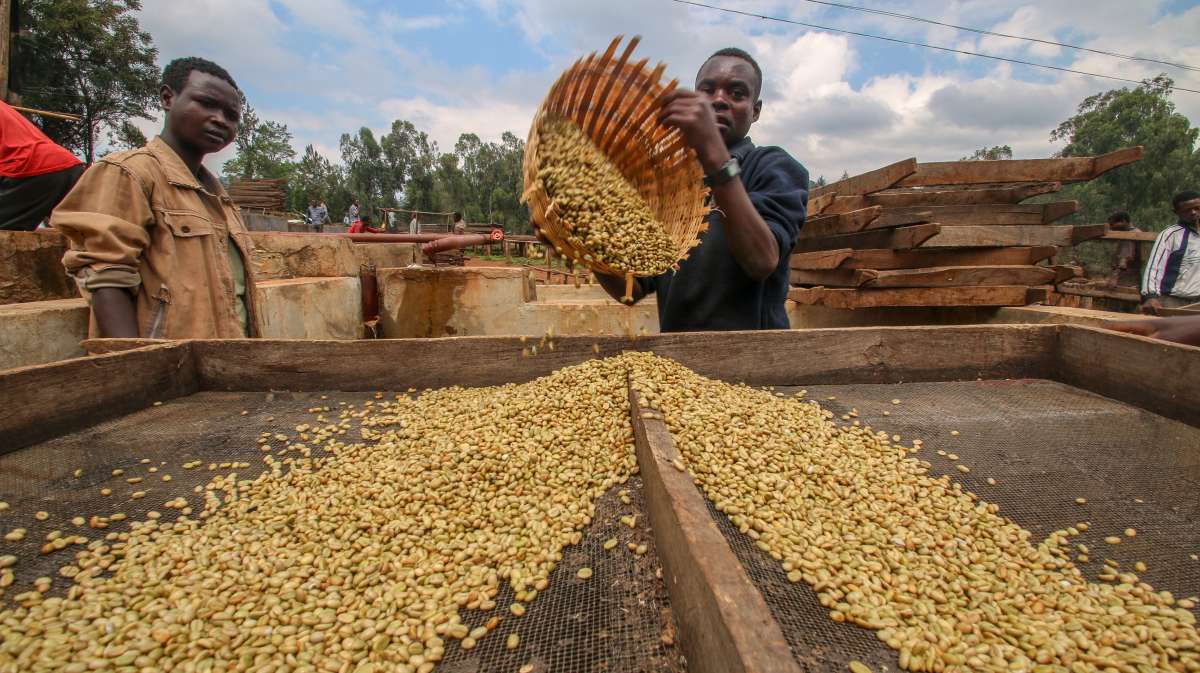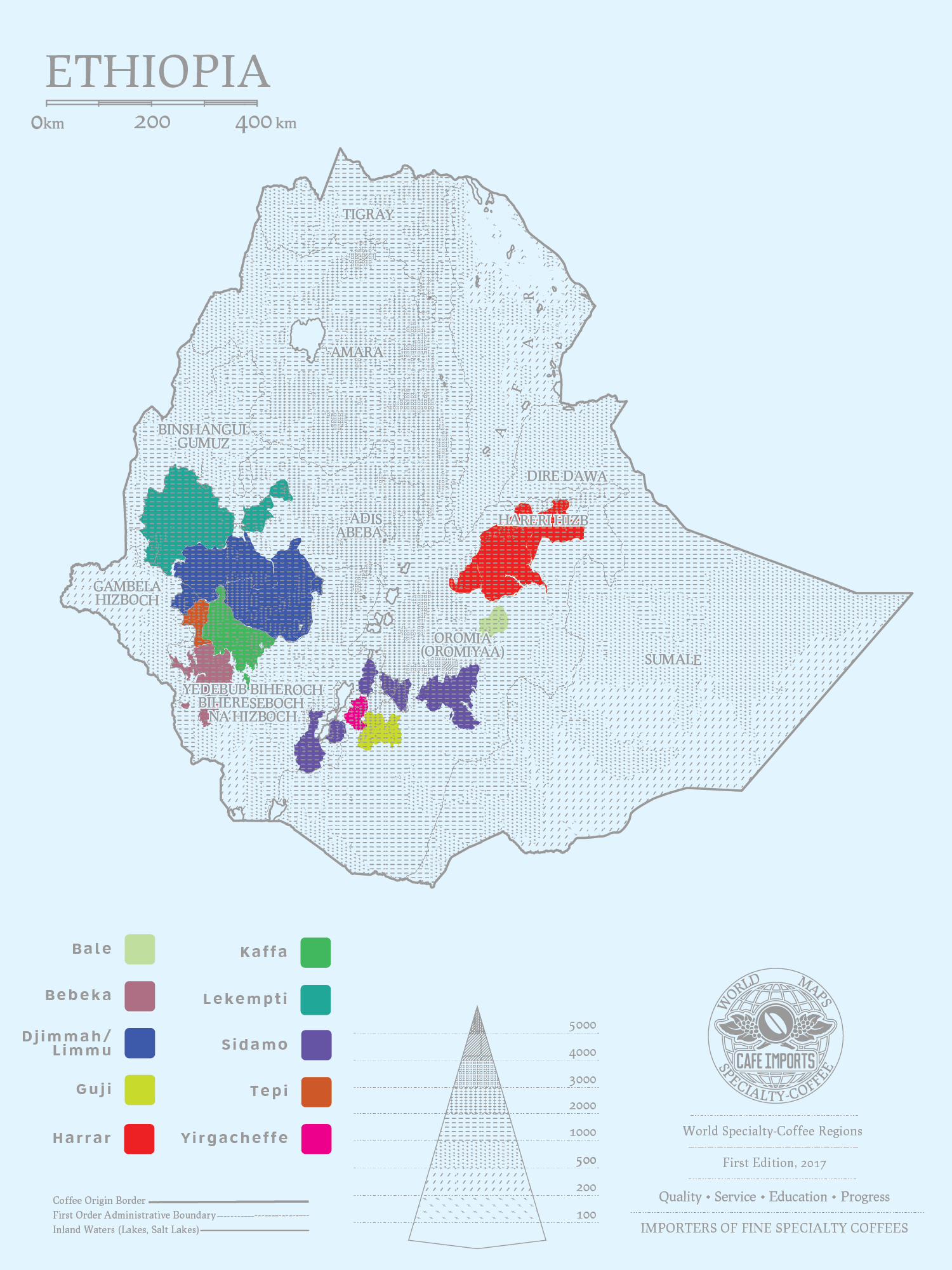Ethiopia
Among coffee-producing countries, Ethiopia holds near-legendary status not only because it’s the “birthplace” of Arabica coffee, but also because it is simply unlike every other place in the coffee world. Unlike the vast majority of coffee-growing countries, the plant was not introduced as a cash crop through colonization.
One of the other unique aspects of Ethiopia’s coffee production is that domestic consumption is very high, because the beverage has such a significant role in the daily lives of Ethiopians: About half of the country’s 6.5-million-bag annual production is consumed at home, with roughly 3.5 million bags exported.
The profile of Ethiopian coffees will vary based on a number of factors, including variety, process, and microregion. As a general rule of thumb, natural processed coffees will have much more pronounced fruit and deep chocolate tones, often with a bit of a wine characteristic and a syrupy body. Washed coffees will be lighter and have more pronounced acidity, though the individual characteristics will vary.
City skyline
Photo By: John Doe
Button












